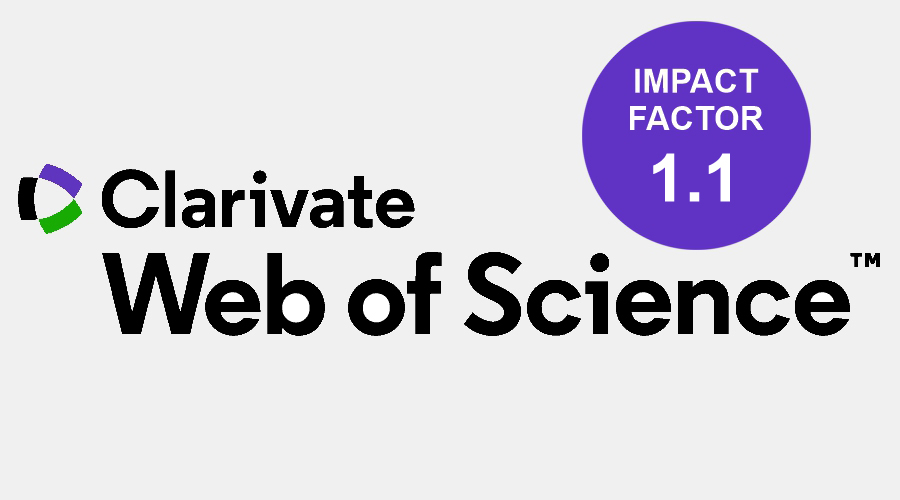The ecosystem services supplied by soil in relation to land use
Abstract
The concept of ecosystem services has become an important tool for modelling interactions between ecosystems and their external environment in terms of global bio-climatic changes. The provision of ecosystem services depends on biophysical conditions and changes over space and time due to human induced land cover and land use. Ecosystem services linked to natural capital can be divided into three services categories (provisioning, regulating and cultural), and ecosystem functions (structures and processes relevant for ecosystem self-organisation, biodiversity, soil macro-organisms, micro-organisms) must be added. Traditionally, agroecosystems have been considered primarily as sources of provisioning services, but more recently their contributions to other types of ecosystem services have been recognized. Agroecosystems can provide a range of other regulating and cultural services to human communities, in addition to provisioning services and services in support of provisioning. Six agricultural study areas, each of them with two different land use categories (arable land and permanent grasslands) located in various natural conditions of Slovakia, were evaluated. For the analysis of the agroecosystem services seven study sites were selected on the basis of the following criteria: 1) polluted area (inorganic contamination); 2) non polluted area (without the inorganic contamination); 3) area threatened by erosion; 4) abandoned land; 5) low productive land; 6) productive land. For each locality two study sites were selected: arable land with annual plant and permanent grassland. The greatest differences can be seen in the relation to land use and diversity of soil types. The agroecosystem services potential value of arable land and grassland sites located in different soil-ecological regions of Slovakia differ in all categories of services. The most significant differences are in provisioning and regulating services. Our results confirm significant negative correlation only between provisioning and cultural agroecosystem services.
References
Barančíková, G. 2014. Monitoring of quantitative and qualitative composition of soil organic mater. In Soil monitoring of the Slovak republic. Actual state and development of monitoring soil properties as the basis for their protection and land use (the period 2007-2012). Ed.: Kobza, J., Bratislava, NPPC-VUPOP, 53-89.
Bateman, I.J., Day, B.H., Jones, A.P. and Jude, S. 2009. Reducing gain-loss asymmetry: A virtual reality choice experiment valuing land use change. Journal of Environmental Economics and Management 58. 106-118. https://doi.org/10.1016/j.jeem.2008.05.003
Bujnovský, R., Balkovič, J, Barančíková, G., Makovníková, J., Vilček, J.2009. Assessment and valuation of ecological functions of agricultural land in
Slovakia. Bratislava, VUPOP. Burkhard, B., Kandziorai, M.S. and Müller, F.2014. Ecosystem Service Potentials, Flows and Demands - Concepts for Spatial Localisation, Indication and Quantification. Official Journal of the International Association for Landscape Ecology. Regional Chapter Germany. Accessed 21.02.2015.
Conant, R.T., Paustian, K. and Elliott, E.T. 2001. Grassland Management and Conversion into Grassland Effects on Soil Carbon. Ecological Applications 11. 343-55. https://doi.org/10.1890/1051-0761(2001)011[0343:GMACIG]2.0.CO;2
Crossman, N.D., Burkhard, B., Nedkov, S., Willemen, L., Petz, K., Palomo, I., Drakou, E.G., Martín-Lopez, B., McPhearson, T., Boyanova, K., Alkemade, R., Egoh, B., Bunbar, M.B. and Maes, J. 2013. A blueprint for mapping and modelling ecosystem services. Ecosystem Services 4. 4-14. https://doi.org/10.1016/j.ecoser.2013.02.001
Daily, G.C. ed. 1997. Nature's services: societal dependence on natural ecosystems. Washington, DC, Island Press.
Dominati, E., Patterson, M. and Mackay, A. 2010. A framework for classifying and quantifying the natural capital and ecosystem services of soils'. Ecological Economics 69. 1858-1868. https://doi.org/10.1016/j.ecolecon.2010.05.002
Feld, C.K., Martins da Silva, P., Paulo Sousa, J., De Bello, F., Bugter, R. and Grandin, U. 2009. Indicators of biodiversity and ecosystem services: a synthesis across ecosystems and spatial scales. Oikos 118. 1862-1871. https://doi.org/10.1111/j.1600-0706.2009.17860.x
Felipe-Lucia, M.R., Comin, F.A. and Bennett, E.M. 2014. Interactions among ecosystem services across land uses in a floodplain agroecosystem. Ecology and Society 19. (1): 20. ES-06249-190120. Accessed 21.02.2015. https://doi.org/10.5751/ES-06249-190120
Gelaw. M.A., Singh. B.R. and Lal. R. 2014. Soil organic matter and total nitrogen stocks under different land uses in semi-arid watershed in Tigray, Northern Ethiopia. Agriculture, Ecosystems and Environment 118. 256-263.. Accessed 03.02.2014. https://doi.org/10.1016/j.agee.2014.02.035
Hönigova, I. et al. 2012. Survey on grassland ecosystem services. Report to the EEA European Topic Centre on Biological Diversity. Prague, Nature Conservation Agency of the Czech Republic.
Makovníková, J., Barančíková, G. and Pálka, B. 2007. Approach to the assessment of transport risk of inorganic pollutants based on the immobilisation capability of soil. Plant, Soil and Environment 53. (8): 365-373. https://doi.org/10.17221/2215-PSE
Makovníková, J., Kanianska, R. and Kizeková, M. 2015. An approach to evaluating potential of cultural agroecosystem services. Ecology and Safety 9. 24-33.
MEA 2005. Millennium ecosystem assessment. In Ecosystems and human well-being: biodiversity synthesis. Washington, DC, World Resources Institute.
Naidoo, R., Balmford, A., Costanza, R., Fisher, B., Green, R.E., Lehner, B., Malcolm, T.H., and Ricketts, T.H. 2008. Global mapping of ecosystem services and conservation priorities. Proceedings of the National Academy of Sciences of the USA 105. 9495-9500. https://doi.org/10.1073/pnas.0707823105
Power, A.G. 2010. Ecosystem services and agriculture: trade-offs and synergies'. Philosophical Transactions of the Royal Society B 365. 2959-2971. https://doi.org/10.1098/rstb.2010.0143
Sanford. G.R. 2014. Perennial grasslands are essential for long term SOC storage in the Mollisols of the North Central USA. In Soil Carbon. Eds.: Hartemink, A. and McSweeney, K., Heildelberg, Springer Cham, 281-288. https://doi.org/10.1007/978-3-319-04084-4_29
Schulp, C.J.E., Alkemade, R., Goldewijk, K.K. and Petz, K. 2012. Mapping ecosystem functions and services in Eastern Europe using global-scale data sets. International Journal of Biodiversity Science, Ecosystem Services and Management 8. (1-2): 156-168. https://doi.org/10.1080/21513732.2011.645880
Vihervaara, P., Kumpula, T., Tanskanen, A. and Burkhard, B. 2010. Ecosystem services - A tool for sustainable management of human-environment systems. Case study Finnish Forest Lapland. Ecological Complexity 7. (3): 410-420. https://doi.org/10.1016/j.ecocom.2009.12.002
Zhang, W., Ricketts, T.H., Kremen, C., Carney, K. and Swinton, S.M. 2007. Ecosystem services and disservices to agriculture. Ecological Economics 64. 253-260. https://doi.org/10.1016/j.ecolecon.2007.02.024
Copyright (c) 2017 Jarmila Makovníková, Radoslava Kanianska, Miriam Kizeková

This work is licensed under a Creative Commons Attribution-NonCommercial-NoDerivatives 4.0 International License.






